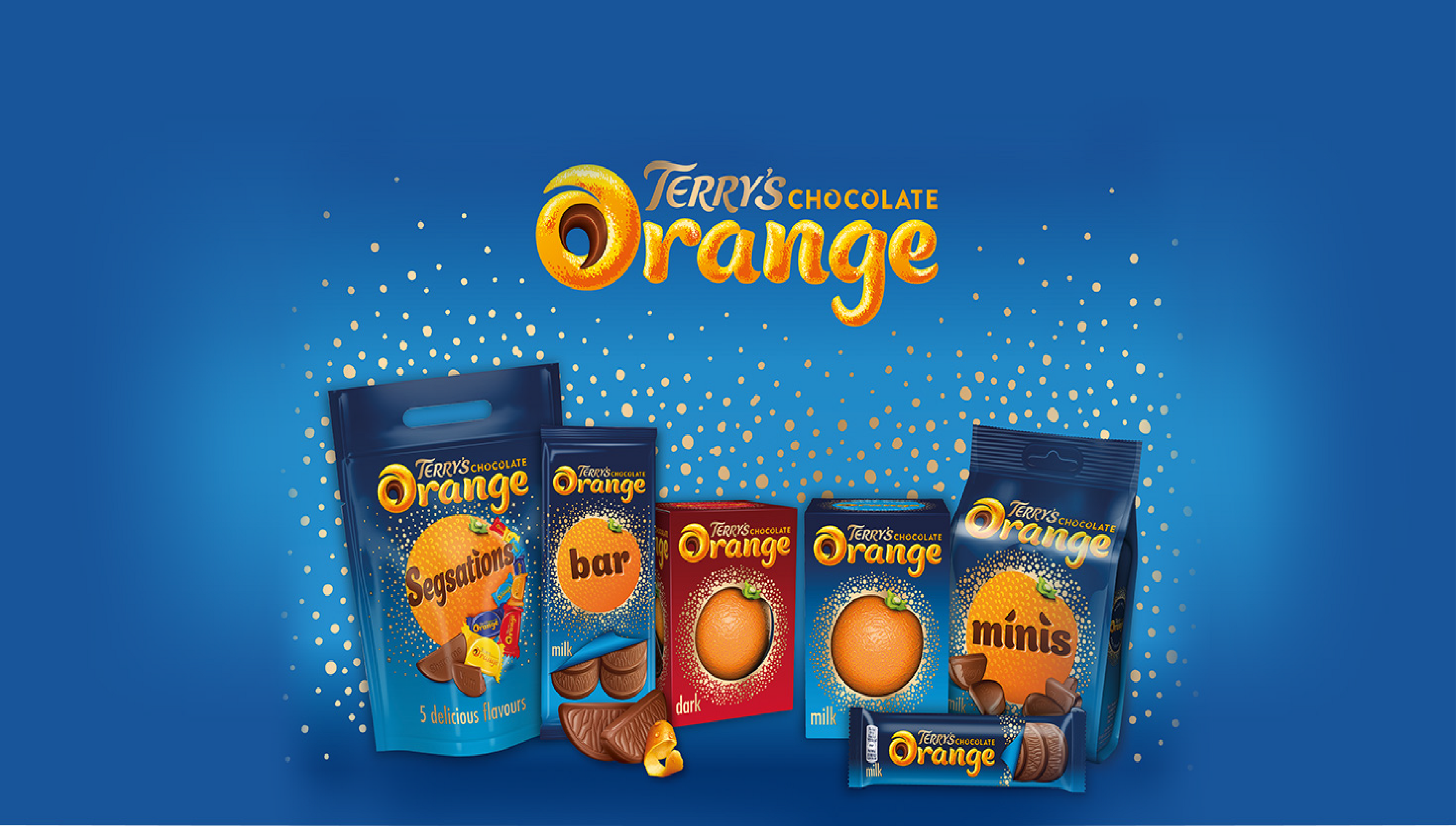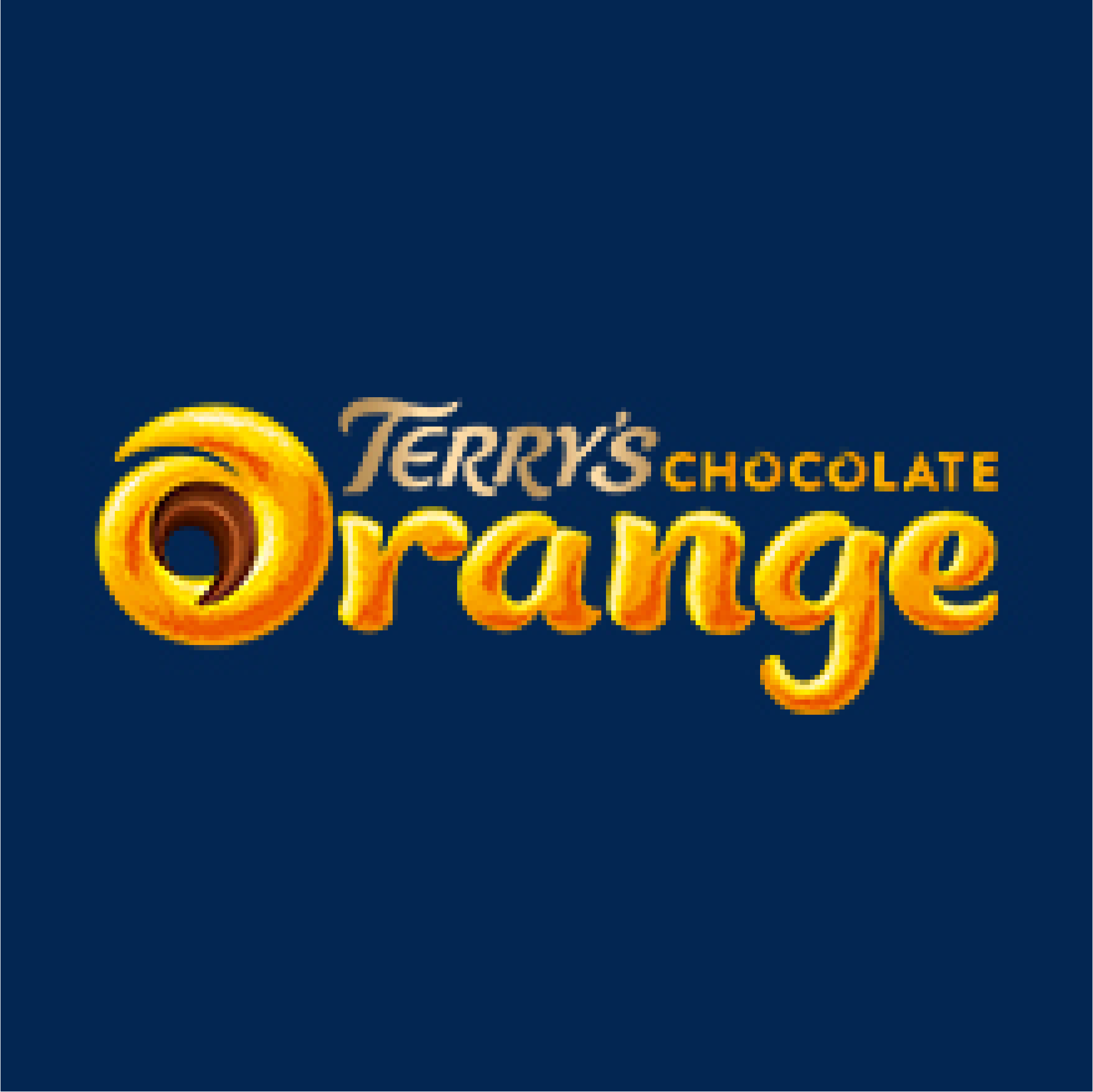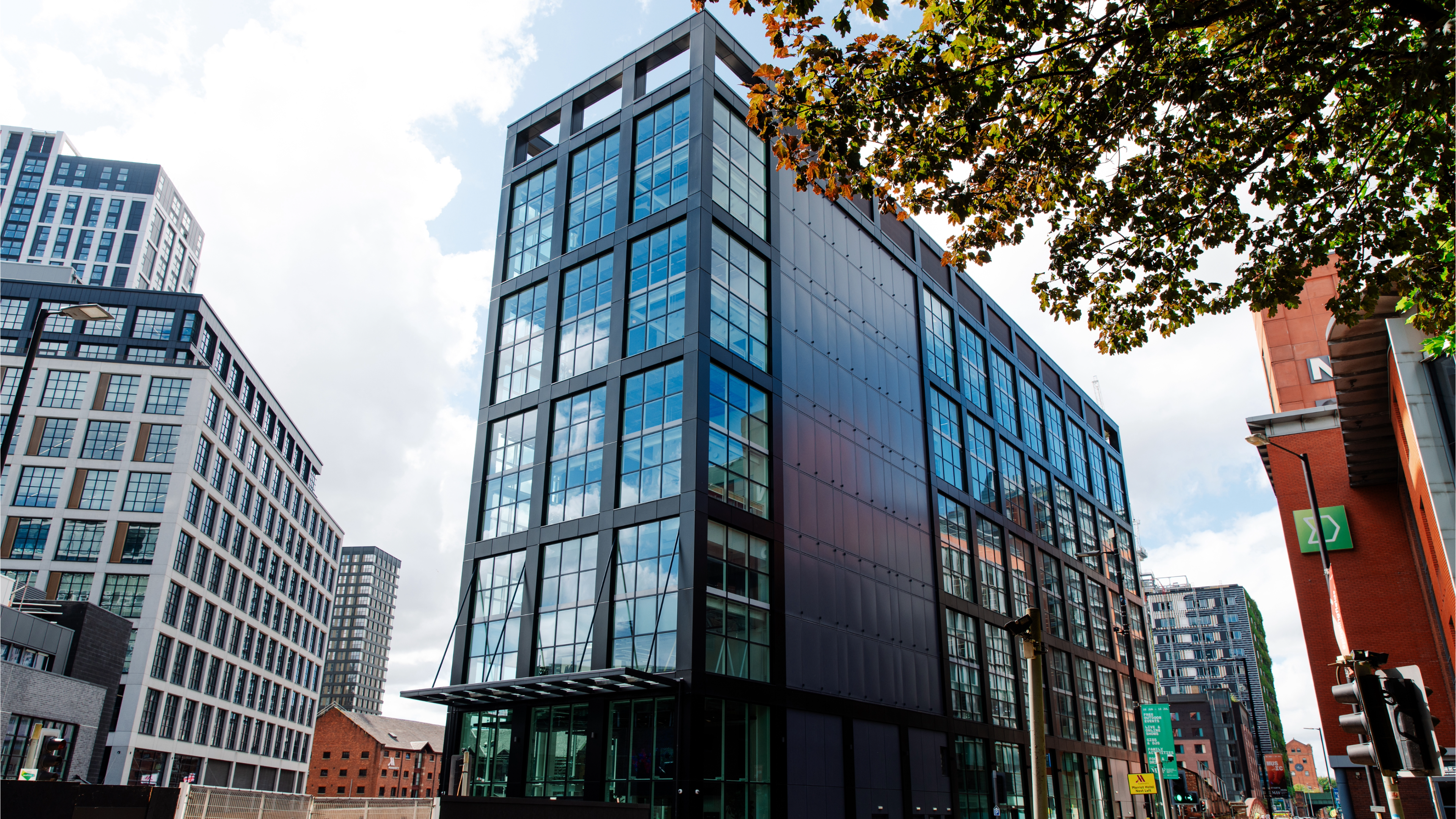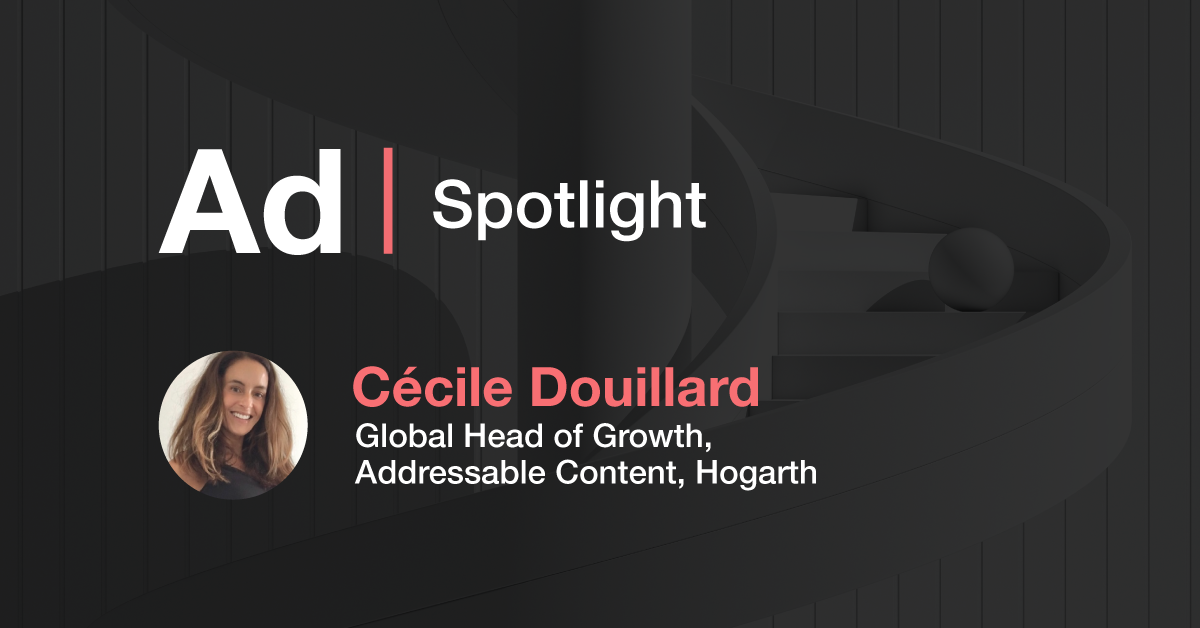Ad Spotlight: Sue Todd, CEO, NABS
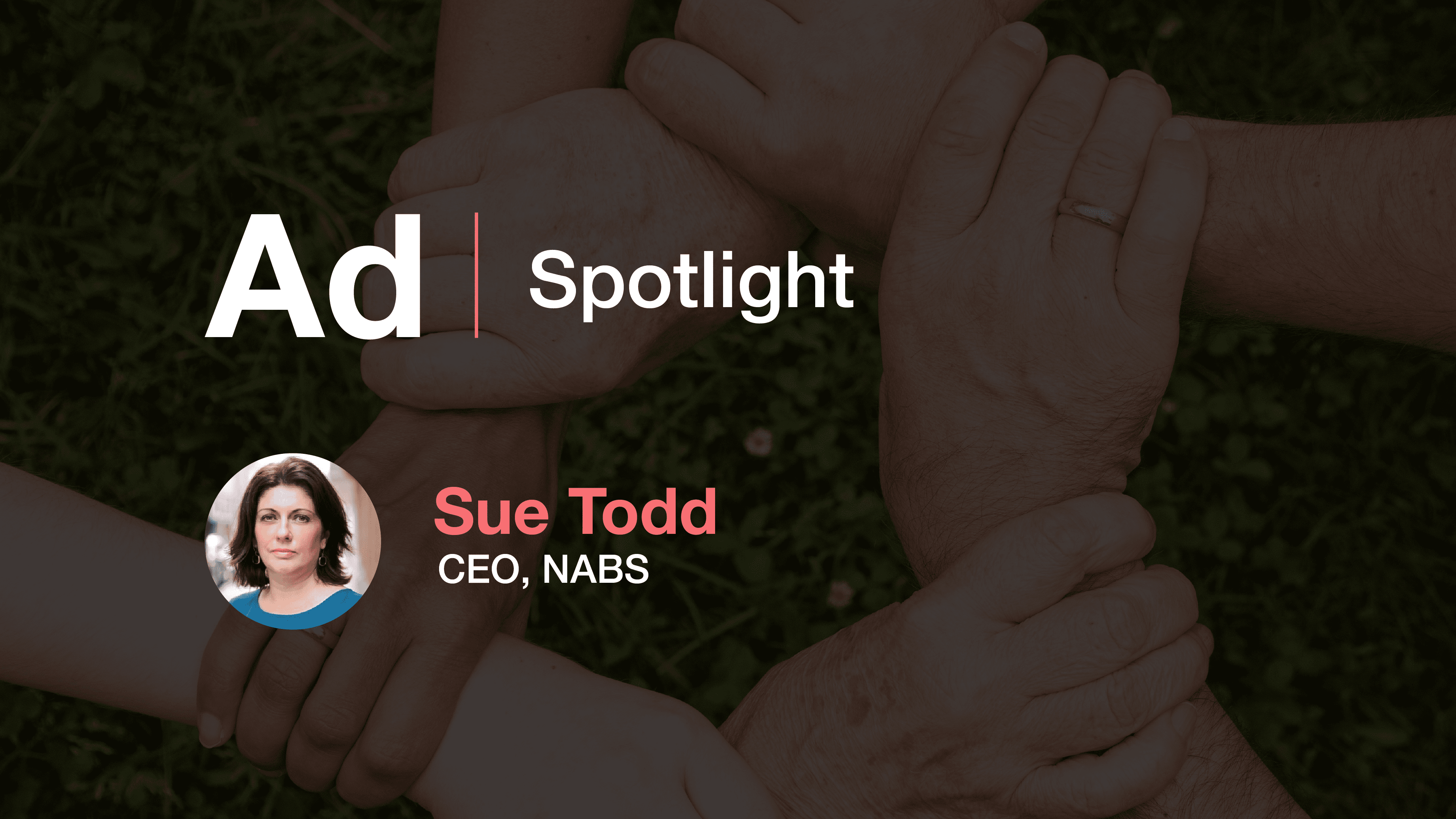
Welcome to the Ad Spotlight series where we hear from a different guest from the industry each month to get an insight into the landscape of advertising as well as their own personal experiences.
Our guest this month is Sue Todd. Sue has 25 years of experience working with brands and individuals across the advertising industry to maximize employee and business potential. She joined NABS (the National Advertising Benevolent Society) as CEO in April 2022, where she leads the charity’s mission to advance mental wellness in the advertising, marketing media industry.
With a background in transformation and cultural change, plus hands-on industry experience, Sue is here to shine a light on where the industry stands, where we’re succeeding, and where improvements can be made.
Q: Why did you choose a career in advertising and media?
A: I’ve always been interested in human behaviour. It’s crucial to my role at NABS today and is what led me to study marketing at university. From there, I started out at a local radio station in Manchester, and it didn’t take me long to realise how fun the media industry was. Getting to see how marketing, media, and advertising coexist – and what makes people tick – had me hooked.
Q: What are the biggest challenges facing the industry right now?
A: I think the industry is quite aligned on the challenges it is facing; talent attraction and retention, mental wellness, creating an environment where people can thrive, and achieving greater inclusion and cohesion. And they all interlink.
As we continue the journey to increase diversity (which is by no means complete), it is important to ask how we create a cohesive environment that accommodates different voices and opinions and ways of doing things. And that echoes mental health challenges the industry is facing, too. Making sure mental health isn’t a taboo and thinking about it like we do physical health is crucial to tackle the feeling of imbalance and uncertainty that can develop.
The solutions are complex but, at no point in my time in the industry, have boards, agencies, and companies been as aligned on finding the answers.
Q: Sum up the future of advertising/media in three words…
A: Brave: Our sector is at the forefront of so much change, whether it’s social or cultural or new technology and digital disruption. Being brave is when boundaries are pushed.
Better: People join our industry because it’s exciting. But that relentless speed can also tip into stress. Better support structures are needed.
Bright: Seeing the work that is being done already gives me confidence that the industry can adjust.
Q: What is your biggest career highlight?
A: I’m really lucky that I’ve worked with lots of incredible people and teams but what makes me most proud is Wonder, the small consultancy I built and ran with my partner Gary Hollins for eight years. It allowed us to support the cultures of many of the most progressive businesses in our industry - from MEC (now Wavemaker) and Channel 4 to Ocean Outdoor and Grey, and may more. We did some really good work, had lots of fun doing it and I got to see my daughter a ton in the first eight years of her life. Working for myself and building something from scratch helped me truly understand what my capabilities were and weren’t and where I added value to teams and businesses.
Q: And your favourite advert?
A: This Girl Can by Sport England. The first time I saw that on TV was the first time I remember seeing real women swimming, sweating, and doing sport in an ad. The term can be overused, but it was a genuinely ground-breaking campaign. I showed it to my daughter who was seven, and its impact went beyond an advert. It started conversations that I believe had a direct impact on the increase in participation (and success) in women’s sport.
[You can watch the ad here.]
Starting conversations and providing support is a big part of your day job at NABS. Let’s dive into that a little more…
Q: Calls to NABS have increased dramatically by 100% YoY this year. Why do you think this is?
A: It is a combination of things. We’re all a little more honest about how we feel and when we need support. The fact people are more comfortable seeking support is a good thing. Yet, and this goes beyond advertising, there are also more people feeling overwhelmed, burnt out, or stressed post-pandemic as we try to find our balance in what has been quite a relentless time.
The more important thing is making sure we can accommodate that increased demand. Because it could make all the difference.
Q: What initiatives are available to people?
A: NABS is about helping people get the skills and mindsets to thrive in the industry. We’re always looking to do more to promote what good mental health looks like. At the most basic level, that is supporting individuals to help keep them balanced – whether that is through calling NABS’ support team, accessing therapy via our referral service or applying for financial assistance.
We also do a lot in what I’d call the interpersonal skill development space. From building resilience and confidence to becoming an inclusive leader, our growth workshops are free to individuals in our industry to support their development and that feeling of confidence in what you do.
The other thing we’re big on is connecting people, groups, and communities to help address the big issues in our industry. That can be through mentoring or taking part in one of our courses. Fostering a sense of belonging and social cohesion is so important as the industry evolves. And, when you are struggling, it can be nice to have someone from outside your immediate work environment to speak to.
Q: How can managers create a supportive environment?
A: A recent study showed that your boss has the biggest effect on your mental health, so managers need to feel competent and confidence around mental health support. But it’s tough. The old methods and ways of managing don’t all work with, for example, more people working away from the office.
I’m having to learn new ways of providing support, and it’s the same for a lot of us. It’s important to create a culture where everyone feels safe and supported. That includes providing the right training to managers (new and old). At NABS, we’ve recently launched our Inclusive Leader and Trusted Hybrid Leader courses to help people get the tools and strategies they need.
Q: Lastly, do you have one piece of advice to help promote good mental well-being?
A: When you ask someone how they are, ask it twice. The typical response to that question is to say, “I’m fine”. But, by asking again, you’re much more likely to get an honest response. Of course, you never want to push someone if they don’t feel like talking, but it speaks to this wider point about encouraging openness and safer spaces for conversations on coping.
Call NABS for a confidential chat on 0800 707 6607, email support@nabs.org.uk for help and guidance, or visit nabs.org.uk to find out more about its broad range of support services.
Enjoyed this Ad Spotlight? Check out previous editions to see how other names across the industry found their way into advertising, and what they predict for its future – including Kelly Parker (CEO, Wavemaker UK) and Seb Munden (Chair, Ad Net Zero).

